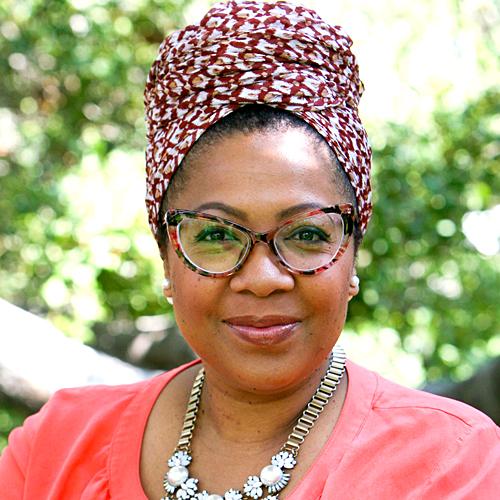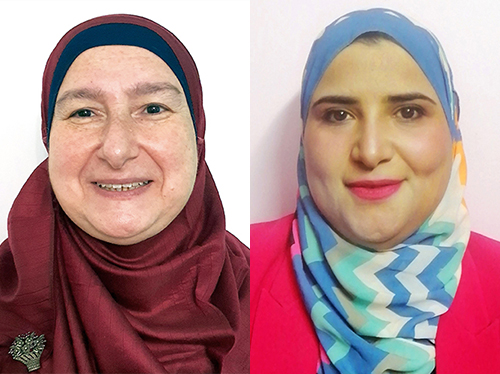 IBCLC Detailed Content Outline: Clinical Skills Focused CERPs - Section VII
IBCLC Detailed Content Outline: Clinical Skills Focused CERPs - Section VII
Access CERPs on Clinical Skills for the IBCLC Detailed Content Outline recertification requirements. Enjoy convenient on-demand viewing of the latest Clinical Skills focused IBCLC CERPs at your own pace.
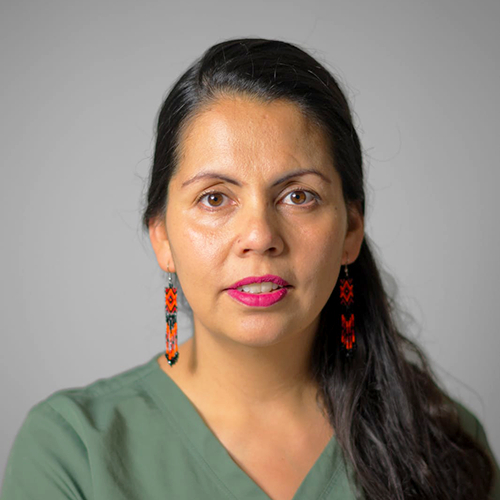
Birth at the Border: A Case Study of Refugees and Migrants at the Tijuana-San Diego Border

CNM Ximena Rojas Garcia is a Midwife and licensed Obstetric Nurse from the National Autonomous University of Mexico, she comes from a line of traditional midwives. Ximena has 15 years of experience in her field and as a Midwifery Professor, she has certifications in Obstetrical Emergencies, Neonatal Resuscitation, Water birthing and Acupuncture. Ximena founded "Partería y Medicinas Ancestrales," the only Mexican Midwifery NGO that includes Midwives from all paths and programs, which was instrumental in providing maternal health access during the humanitarian crisis after the arrival of thousands of asylum seekers from Haiti, Congo and Central America to the US-Mexico border.
Ximena has been collaborating with Stanford University's Obstetricians, Gynecologists and Pediatricians to train Midwives and Health providers at the US San Diego-Tijuana border to improve birth outcomes. She organizes direct relief to support trauma recovery responding to crises and disasters as a member of Acupuncturists Without Borders. Ximena also created a Doula training program, responsible for training more than 300 Doulas in Mexico, Colombia and Guatemala, aimed at eradicating obstetric violence, lowering the frequency of unnecessary c-sections, and decreasing maternal and newborn mortality.
Ximena is one of the founders and co-directors of Refugee Health Alliance and currently practices clinically at Justicia en Salud RHA Sexual & reproductive health free clinic. She established the first free birth center in Baja California, Mexico that serves vulnerable populations including displaced migrants, asylum seekers, deportees, sexual assault survivors, black, brown and indigenous families who historically had faced forced sterilizations, higher maternal death and newborn death. Her philosophy of birth is: Birth is a unique experience like a ceremony that heals trauma and the next generations when we hold space for it to happen.
Over the past years, Tijuana, Mexico, has seen an influx of U.S.-bound refugees and migrants, many of whom have escaped incredibly difficult situations in their country of origin. With no or little access to healthcare, pregnant women and girls are often most vulnerable.
Parteras Fronterizas / Borderland Midwives caters to the unique needs of this underserved patient population by utilizing a holistic approach that combines midwifery, traditional and Western medical practices.
This presentation explores the unique challenges pregnant migrants and refugees face at the US/Mexico border.
It highlights the importance of the midwifery model of care and dives into how midwives and healthcare providers can provide compassionate, trauma informed and comprehensive care despite difficult and limiting circumstances. The presentation will also discuss global health and midwifery skills that can help dismantle health disparities.
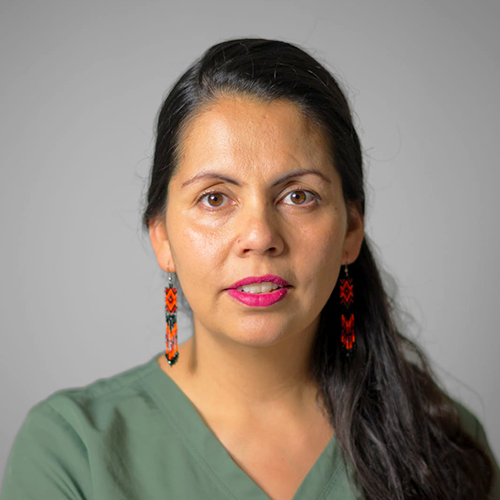
View Details / Enroll
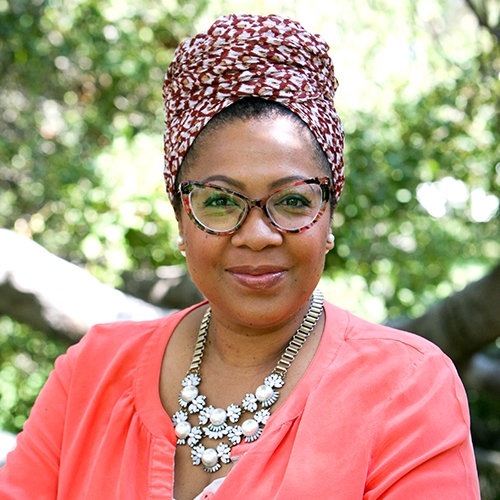

Nekisha Killings is an equity strategist, internationally board-certified lactation consultant, and maternal and child health advocate who speaks, teaches, and facilitates on topics related to equity and dismantling bias across various sectors.
When she is not home educating 4 future world changers, she acts as a Director of Equity, Inclusion and Belonging at Lactation Education Resources and consults organizations on creating and implementing strategies to better support marginalized communities.
Nekisha holds a Masters in Public Health and penned the chapter titled Cultural Humility in the latest Core Curriculum for Interdisciplinary Lactation Support text. Nekisha is on a mission to normalize brown breasts and nipples in health education, thereby better equipping healthcare providers to accurately assess and treat people of color.
Nekisha's work is rooted in a compassion and candor that could only have been cultivated in years of supporting new parents during their first days of parenthood. Nekisha is an active duty military spouse who has been awarded the Spouse of the Year designation for her volunteer efforts supporting families.
Topic: Breast Assessment and Non-White Skin Tones - [View Abstract]
Topic: BreastSide Manner: A Patient-Centered Approach to Lactation Support - [View Abstract]
Topic: Marching Orders: Developing Practical and Impactful Care Plans - [View Abstract]
Is a red spot always a key indicator of mastitis? What about the deep purple trademark of vasospasm? How does eczema present on non-white skin? Performing a standard breast assessment may cause clinicians to overlook or misidentify key indicators of maladies in patients that are not fair skinned. Learn how you can improve your assessments and familiarize yourself with other ways to identify common conditions in patients populations that may not have been featured in your textbooks.
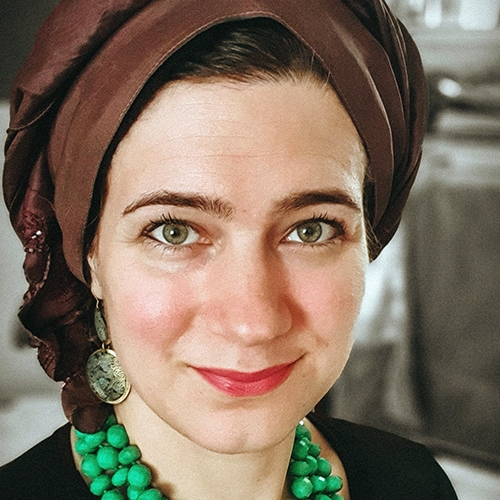
Breastfeeding / Nursing Aversion and Agitation (BAA) in breastfeeding mothers

Zainab Yate is a Biomedical Ethicist, with a specialist interest in infant feeding. Zainab is Vice Chair and named qualitative lead on a paediatric flagged Research Ethics Committee Panel for the Health Research Authority (HRA) in the UK, reviewing research protocols for over a decade. Zainab's previous working background is in Public Health and Commissioning the National Health Service (NHS) in the UK. She had also been a volunteer breastfeeding peer supporter with the NHS for a number of years, is the owner-author of the resource site for mothers and healthcare practitioners on Breastfeeding / Nursing Aversion and Agitation and author of "When Breastfeeding Sucks".
Topic: Breastfeeding / Nursing Aversion and Agitation (BAA) in breastfeeding mothers - [View Abstract]
Topic: Navigating the Future: Bioethical Challenges in Anticipated Integration of AI in Lactation and Breastfeeding Services - [View Abstract]
Topic: Research Ethics & Infant Feeding: How to Utilise the Four 'D's of a Brief Assessment - [View Abstract]
Aversion to breastfeeding or agitation while breastfeeding is known to occur in some women who breastfeed while pregnant, or who tandem feed a newborn and a toddler. However, it is a little researched area, and the paucity of published literature around breastfeeding aversion and agitation reveals a significant gap in the literature. My presentation presents the findings of an exploratory online survey that sheds light on what appears to be a commonly experienced phenomenon of aversion and agitation whilst breastfeeding, which varies in form, severity and duration. BAA is characterised by feelings of anger or rage, a skin crawling sensation and an urge to remove the suckling infant, but can also be feelings of agitation and irritability whilst the infant is latched. Mothers who experience BAA still continue to breastfeed, but have feelings of guilt and shame about BAA and are often confused about having feelings of BAA. Research is needed to understand the reasons for BAA, its causes, triggers and strategies to minimize the experience in breastfeeding mothers.

View Details / Enroll
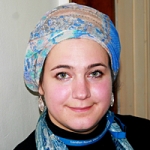
View Details / Enroll


Paulina is the mother of three multicultural Latino children and Project Director for Lifespan Local. Paulina earned her BS in Psychology from the Pennsylvania State University, a MS in Organizational leadership from the University of Denver and is completing her PhD in Health and Behavioral Sciences at the University of Colorado - Denver. Paulina has over 18 years of experience working with families with young children. As a Maternal Child Health specialist for Jefferson County Public Health, she developed a NICU follow-up home visitation program and the pediatric emergency preparedness plan, co-founded and coordinated the Conectando Network (former Adelante Jeffco), established community navigation and lactation support groups focused on the Latino Spanish speaking community, and lead other initiatives to support leadership and partnerships among communities and organizations. During the COVID-19 pandemic, she managed the new program Whole Community Inclusion to ensure the pandemic response and recovery implementation included health equity practices that recognize the needs and the strengths of priority populations in the county. Her areas of current work include promoting perinatal and infant mental health along the continuum of care; building community capacity to navigate health and education systems; facilitating organizational change to embrace linguistic and culturally responsive practices; and establishing community-placed participatory programs to strengthen communities. She likes to be with people, learn from and with others, and connect passions for meaningful work.
Topic: From the NICU to the home: mother’s experiences - [View Abstract]
Topic: Leadership Skills in Lactation: Make Extraordinary Things Happen - [View Abstract]
Topic: Liderazgo en Lactancia - Para Alcanzar Metas Extraordinarias - [View Abstract]
Topic: Nursing A Preemie, Perspectives For Lactation Supporters and Professionals - [View Abstract]
Breast/chest feeding is a biological, emotional, and social process. There is an undeniable link between human
milk and behaviors associated with feeding. Breast or chest feeding provide the perfect environment for babies’
development, such as bonding, attachment, mutual regulation, security, etc. But what happens when parents
can’t access effective, culturally competent, compassionate lactation services? What happens when over
generations lactation support has been lacking?
Every parent deserves the chance to meet their feeding goals and enjoy the short and long term benefits of
human milk feeding. Social inequities augment the effects of not experiencing those benefits making it even
harder for parents and babies to have their physical, emotional and social needs met. Outcomes of lactation
impact the dyad, the family, the community beyond the nutritional needs of the infant.
Advocacy efforts at local, regional and national levels create meaningful opportunities for health equity, so
those with no power or resources can reach optimal health. Lactation consultants are in a unique position to
advocate and partner with others to support policies and programs that focus on equity as a systems approach
to benefit marginalized communities and impact their physical and mental health in the long-term.

View Details / Enroll
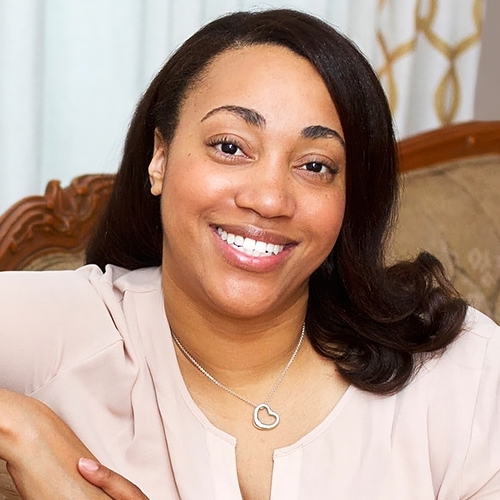
Breastfeeding as a Preventative Care Change Model: How to Affect Change

Mona Liza Hamlin, MSN, RN, IBCLC is the nurse manager of Perinatal Resources and Community Programs for the Women & Children’s Service Line at Christiana Care Hospital in Newark, Delaware. Her role consists of improving both inpatient and outpatient programs that focus on reaching the triple AIM, and improving health equity in the state of Delaware. Hamlin serves as Past-Chair to the United States Breastfeeding Committee (USBC). The USBC is a coalition of more than 50 organizations that support its mission to drive collaborative efforts for policy and practices that create a landscape of breastfeeding support across the United States.
She is a founding member of the National Association of Professional & Peer Lactation Supporters of Color (NAPPLSC), an organization aimed at addressing breastfeeding disparities and improving breastfeeding
amongst families of color. Hamlin also serves as a member of the Delaware Healthy Mother & Infant Consortium and is a board member
for the Breastfeeding Coalition of Delaware. Her fundamental
belief is that equitable access and high quality care are provided to all women and families, especially those most vulnerable to lack of access and systemic barriers to care. Fueled by her professional and personal experiences and passions, Hamlin strives to ensure that all mothers have access to a full scope of perinatal care, support and resources.
No matter where we look health disparities, morbidity and mortality continue to persist. This is especially true in the maternal child health field. We all understand the value of breastfeeding and human milk and it is now critical to merge that value across the spectrum of maternal child health. No matter the organization or work we are in; clinical, community, public health, or policy; we must create connections that improve and create holistic approaches to improve health and prevent illness. Linking breastfeeding and human milk in efforts made outside of the field of lactation will improve overall efforts to improve maternal child health. This discussion will give opportunity to explore how to engage with non traditional stakeholders and make the connections where breastfeeding isn't traditionally included to discuss preventative care for maternal child health as a whole.
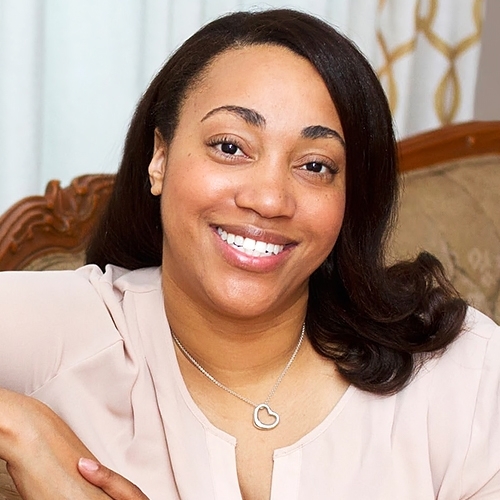
View Details / Enroll
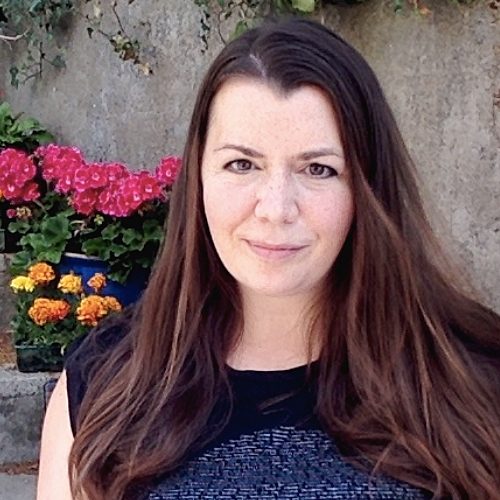
Breastfeeding as a Public Health Issue: Do we Have the Right Approach?

Professor Amy Brown is based in the Department of Public Health, Policy and Social Sciences at Swansea University in the UK. With a background in psychology, she has spent the last thirteen years exploring psychological, cultural and societal influences upon infant feeding decisions in the first year. Her research seeks to understand how we can shift our perception of how babies are fed away from an individual mothering issue to a wider public health problem – with societal level solutions. Dr Brown has published over 60 papers exploring the barriers women face in feeding their baby during the first year. She is a mother to three human children and three book babies: Breastfeeding Uncovered: Who really decides how we feed our babies, Why starting solids matters, and The Positive Breastfeeding Book: Everything you need to feed your baby with confidence. She is a regular blogger, aiming to change the way we think about breastfeeding, mothering and caring for our babies.
Topic: Breastfeeding Trauma: How Can We Recognise and Support Mothers Who Wanted to Breastfeed but Were Unable to Meet Their Goals? - [View Abstract]
Topic: How Can We Better Support Mothers Don’t Meet Their Breastfeeding Goals? - [View Abstract]
Topic: What Do Normal Infant Feeding Patterns Really Look Like? - [View Abstract]
The majority of women should be able to breastfeed, but elements of their experience are ultimately stopping them from doing so. Breastfeeding works best when done responsively but many psychological, social and cultural factors work directly or more subtly against responsive feeding, meaning that many mothers experience difficulties with breastfeeding which can lead to premature weaning. These factors can include separation of mother and baby, a lack of understanding of breast milk production, public attitudes and wider pressures of motherhood to name a few. If we want to support mothers to breastfeed we must understand and target these wider factors to create a supportive breastfeeding environment. It is important however that our approaches to breastfeeding promotion and education are perceived positively by mothers in order for them to be effective. In this presentation I’ll be addressing the common barriers to breastfeeding and their impact, along with new research that looks at how mothers perceive common breastfeeding education messaging and what this research tells us about how we can change our approach to ensure our messages have the intended impact.

View Details / Enroll
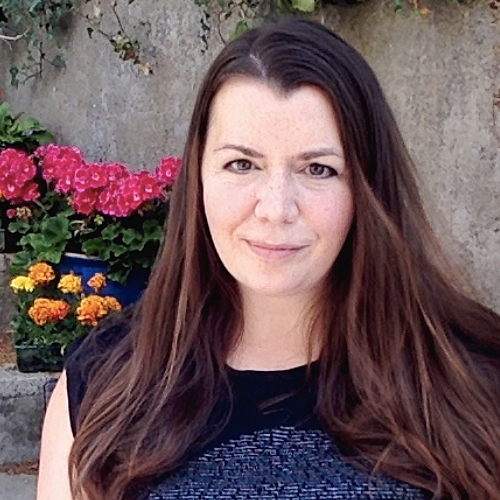
View Details / Enroll

Breastfeeding in Hong Kong and traditional Chinese wisdom on confinement practices

Heidi Lam is a private practice IBCLC and La Leche League Leader in Hong Kong. She tandem nurse her two daughters and have more then 8 years of breastfeeding experience. She was accredited as La Leche League Leader in 2009. In 2010, to she was awarded the Trudi Szallasi Memorial Scholarship from Health-e-learning.com to complete a one year course on lactation medicine. In 2011, she was qualified as International Board Certified Lactation Consultant. Her job focus mainly on home visits to clients and running breastfeeding classes. Heidi is also active in promoting breastfeeding and was often interviewed by parenting magazines and other media in Hong Kong. Heidi was a Hong Kong delegate to spoke at the Susuibu.com International Lactation Conference 2010 in Malaysia. She also speaks regularly at local breastfeeding support groups.
Breastfeeding rates upon discharge is rising in Hong Kong over the past 20 years. Breastfeeding has become more of a topic than ever before. However, it is still very common to have early introduction of formula and exclusive breastfeeding rate is still low. Most private hospitals do not allow 24 hours room in. Many mothers need to go back to work when the baby is only six weeks old. In Hong Kong, it is very common to practice a confinement period after birth. This traditional Chinese wisdom has many benefits for the mothers and babies. Mothers of other cultures can also make use of some of the practices to benefit themselves.

View Details / Enroll

View Details / Enroll
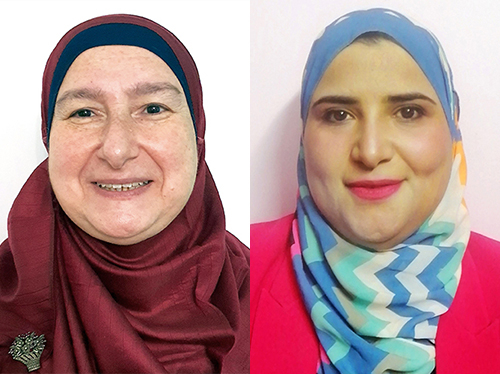

Dr. Amal El Taweel is a graduate of Faculty of Medicine, Cairo University, class of 1986. She obtained the Masters of Pediatrics in 1992 from Faculty of Medicine, Cairo university, and the Doctorate of Pediatrics from Al Azhar university in 2002. She became an IBCLC in 2003. Since 2004 she has been providing a pre-exam course for the Egyptian Lactation Consultants' Association of which she is a board member, treasurer and education coordinator. This program has been helping hundreds of Egyptian and Arab health care providers to certify as IBCLCs. She is also a member of the Advisory committee of IBFAN Arab world since 2012. She is a member of ILCA since 2008 and a member of the Academy of Breastfeeding Medicine (ABM) since 2009. She became a fellow and Board member of ABM in 2021.
Dr. Fayrouz Essawy is a pediatrician, neonatology consultant, an international board-certified lactation consultant, Neonatology Egyptian fellowship trainer, a baby friendly health initiative coordinator and Associate alumni, Harvard medical school. Fayrouz works as a neonatologist in El Mounira NICU. In 2016, she joined the LCCC course as a trainer, lecturer and course developer to train and qualify the medical team for IBCLC certification under the auspices of ELCA along with her work as a lactation consultant and a baby Friendly Coordinator and Trainer for a 20-hour course since 2019 in Rofayda maternity Hospital. She became a Neonatology Egyptian Fellowship trainer in 2020. She received the Egypt TOT (Training of Trainers), Harvard Medical School in 2020, and Research Training for Egyptian Researchers, Harvard Medical School in 2021. She is a member of the Egyptian Society of Pediatrics, the Egyptian lactation consultant association (ELCA), the academy of breastfeeding medicine (ABM) and the international lactation consultant Association (ILCA)
Breastfeeding is one of the matters that Islamic Sharia has given great importance. This is due to its importance and the fact that it replaces lineage in several matters, and the provisions of breastfeeding are many, including those related to the nursing mother and what pertains to the infant, as well as those related to and consequent on the milk itself.
The provisions of breastfeeding in Islam are many, including the provisions of fasting for a nursing mother and the mother’s right to receive the reward for breastfeeding her child, in the event that she is divorced, or revocable and her waiting period has expired, or if she is in the waiting period of death.
Also Islam fully supports adoption and encourages sponsoring orphans, rearing them, treating them kindly and seeing to their needs and interests. But adoption in Islamic law has rules and conditions that must be adhered to. there are some differences between Islam and the present system in other cultures, when we come to the implications and legal consequences of adoption. The rules come directly from the Quran, which gives specific rules about the legal relationship between a child and his/her adoptive family. Muslim women who adopt children may try to breastfeed these children in accordance with the provisions of Islamic Shariah law, which is to breastfeed the infant from three to five full feedings or more when the child is less than two years old.
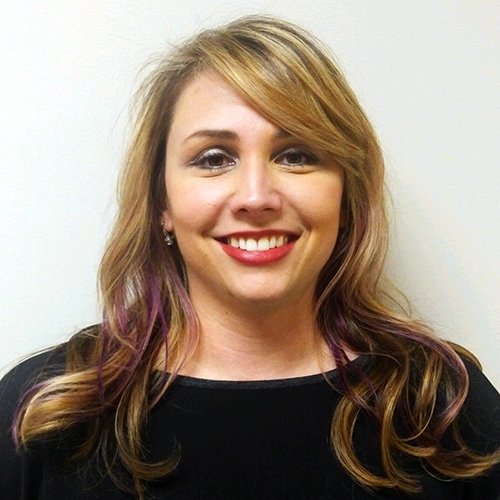
Breastfeeding Medically Complex Infants in the Neonatal ICU

Amber Valentine is a Speech-Language Pathologist who graduated from the University of Kentucky with her MS in Communication Disorders. She is a Board Certified Specialist in Swallowing and Swallowing Disorders and an International Board Certified Lactation Consultant, as well as a Certified Neonatal Therapist (CNT). She worked for Baptist Health Systems, Inc for 8 years before moving to Florida where she worked for Wolfsons Children’s Hospital and Mayo Florida. She is now back in Kentucky working for Baptist Health Lexington. She has experience in adults and pediatrics with feeding and swallowing difficulties including: bedside swallow evaluations, Modified Barium Swallow studies, FEES, and pediatric feeding evaluations including NICU. She has experience with head and neck cancer patient including evaluation and treatment of swallowing difficulties, PMV use, and voice after total laryngectomy including TEP. She has provided guest lectures for the University of Kentucky, Eastern Kentucky University, and the University of Louisville on feeding and swallowing topics. She has presented at the hospital, local, state, national, and international levels on pediatric feeding/swallowing and breastfeeding.
Topic: Breastfeeding Medically Complex Infants in the Neonatal ICU - [View Abstract]
Topic: Building a Successful Breastfeeding Program in the NICU: Challenges and Practical Solutions - [View Abstract]
Feeding is the most complex task of infancy, even in term babies with no complications. There are many diagnoses, conditions, syndromes, and co-morbidities that can impact feeding in neonates and infants. This talk will briefly highlight many of those, but we will focus on three specific populations of interest –Cleft lip and palate, Infants of Diabetic Mothers, and Down Syndrome. We will discuss the specific implications these conditions can have on feeding, why these infants may have difficulty, and the classic symptoms one could expect to see. The differences between delayed and disordered feeding will also be addressed. Strategies and adaptions for both breast and bottle feeding will be discussed. Positioning, nipple flow rate, and external strategies will be explained. Case studies will be shared at the end of the presentation.

View Details / Enroll
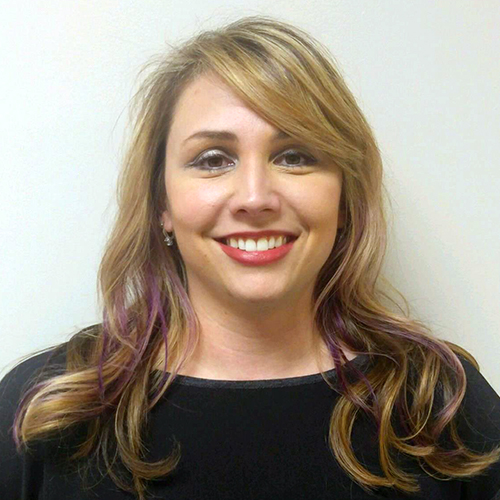
View Details / Enroll

Breastfeeding Trauma: How Can We Recognise and Support Mothers Who Wanted to Breastfeed but Were Unable to Meet Their Goals?

Professor Amy Brown is based in the Department of Public Health, Policy and Social Sciences at Swansea University in the UK. With a background in psychology, she has spent the last thirteen years exploring psychological, cultural and societal influences upon infant feeding decisions in the first year. Her research seeks to understand how we can shift our perception of how babies are fed away from an individual mothering issue to a wider public health problem – with societal level solutions. Dr Brown has published over 60 papers exploring the barriers women face in feeding their baby during the first year. She is a mother to three human children and three book babies: Breastfeeding Uncovered: Who really decides how we feed our babies, Why starting solids matters, and The Positive Breastfeeding Book: Everything you need to feed your baby with confidence. She is a regular blogger, aiming to change the way we think about breastfeeding, mothering and caring for our babies.
Topic: Breastfeeding Trauma: How Can We Recognise and Support Mothers Who Wanted to Breastfeed but Were Unable to Meet Their Goals? - [View Abstract]
Topic: How Can We Better Support Mothers Don’t Meet Their Breastfeeding Goals? - [View Abstract]
Topic: What Do Normal Infant Feeding Patterns Really Look Like? - [View Abstract]
It is recognised that women can experience feelings of guilt, unhappiness and anger when they cannot meet their breastfeeding goals. Breastfeeding difficulties leading to early cessation are a risk factor for postnatal depression. However, research has not previously examined these feelings of loss and distress in relation to clinical models of trauma.
From a research study exploring the experiences of over 3000 women who stopped breastfeeding before they were ready and held negative emotions around this decision, I argue that a subset of these women are displaying symptoms of clinical trauma in relation to their experience. The trauma stems from physical experiences of a difficult breastfeeding experience, but also the loss of a much-desired breastfeeding relationship. The combination of these events leaves the individual traumatised and understandably reactive to the topic of breastfeeding.
Trauma models identify numerous emotions and behaviours that individuals typically display when they have been traumatised by an event. These include recurrent distressing recollections of the events, intense psychological distress at exposure to reminders of the event and efforts to avoid thoughts, feelings or activities that remind one of the event.

View Details / Enroll




